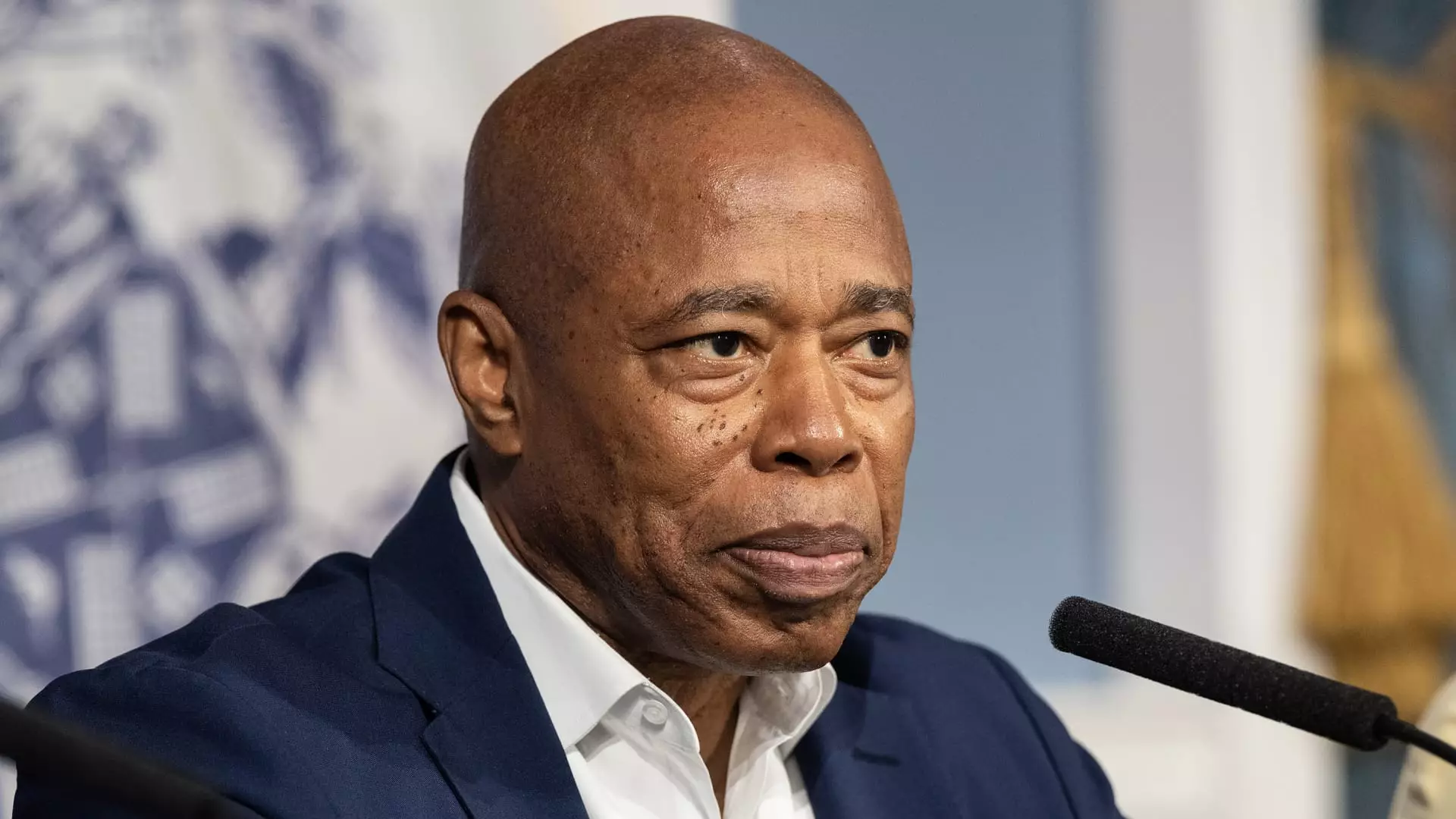In the tumultuous landscape of American politics, the notion of issuing pardons has often been embroiled in controversy, particularly when figures from opposing parties are involved. This is exemplified by President-elect Donald Trump’s recent remarks regarding New York City Mayor Eric Adams. Trump expressed a willingness to consider a pardon for Adams, who is currently facing federal corruption charges, suggesting that the mayor’s treatment has lacked fairness. The intersection of politics and legal proceedings raises pressing questions about the motivations behind such pardons and their ramifications.
Eric Adams, a Democratic mayor serving against the backdrop of a predominantly Democratic city, stands accused of accepting gifts and luxury travel from wealthy foreign businessmen over an extended period. Additionally, he faces conspiracy charges linked to purportedly illegal campaign contributions tied to his 2021 mayoral run. Although Adams has pleaded not guilty, the severity of these allegations could have profound implications for his political career and the public’s trust in his leadership. Trump’s comments appear to downplay the significance of these charges, framing them in a light that suggests they are trivial—an assertion that many may find alarming, especially in the wake of rigorous legal scrutiny.
Trump’s remarks elongate the narrative that this prosecution may not be solely about legal accountability but veers into the realm of political retribution. He insinuates that Adams’ critical stance on the Biden administration’s handling of immigration issues could have played a pivotal role in the legal troubles that followed, as he humorously predicted an indictment shortly after Adams took a more assertive public position on such matters. This raises essential questions about the political implications of legal actions and how often they can be interpreted through the lens of partisanship.
From Adams’ perspective, the charges represent more than legal liabilities; they embody a potential targeting by political adversaries. His assertion of being unfairly prosecuted aligns with the broader complaint voiced by many political figures who believe that legal institutions can sometimes be manipulated for political motives. Adams has publicly distanced himself from discussions of a pardon, asserting that he has not engaged with President Biden on the issue, which could serve to bolster his position as a legitimate mayor focused on his responsibilities, rather than a politician preoccupied with external influences.
The willingness of a newly elected president to publicly discuss the possibility of a pardon for a sitting mayor poses broad implications for American democracy. It underscores the need for transparency in how political and legal landscapes intertwine. Moreover, it prompts a broader discussion about the ethics of pardon powers and whether the motives behind such decisions can ever truly be disentangled from the political arena. As the situation between Trump and Adams unfolds, it becomes a chapter not only in the narrative of their respective careers but also in the ongoing dialogue about accountability, power, and justice in American society.



Leave a Reply